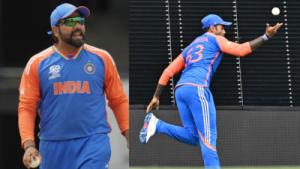Dengue fever, a viral infection transmitted by the Aedes aegypti mosquito, poses a significant public health challenge, particularly in India, which accounts for a substantial portion of the world's 100–400 million annual infections. The disease, characterized by symptoms ranging from mild to severe, can be fatal in some cases, especially for individuals with weakened immune systems. As the monsoon season approaches, bringing with it the peak of dengue infections, there is renewed hope on the horizon. India's first dengue vaccine is nearing completion of its Phase 3 trials, marking a crucial step towards combating this widespread disease.

Dengue fever, spread by Aedes mosquitoes, manifests through high fever, severe headaches, and intense joint and muscle pain. In some instances, the infection can lead to a dangerous decrease in blood platelet count. Severe dengue can result in bleeding, organ failure, and even death. Children and the elderly are particularly vulnerable to the most severe forms of the disease.
Developing a safe and effective dengue vaccine has been a long-standing challenge for scientists. The complexity lies in the existence of four distinct dengue virus types. An effective vaccine must provide protection against all four serotypes. While some vaccines have been developed in other countries, their efficacy has been inconsistent, limiting their widespread adoption.
The Serum Institute of India (SII) is at the forefront of developing India's first dengue vaccine, named "TetraVax-DV." This vaccine is engineered to protect against all four types of dengue viruses. Utilizing a non-live, weakened form of the virus, TetraVax-DV aims to stimulate the body's immune system to effectively combat dengue without causing the illness itself.
Before a vaccine can be authorized for public use, it must successfully navigate through several testing phases:
Phase 3 is a critical phase. It demonstrates the vaccine's ability to prevent dengue within the community.
The Phase 3 trial for India's dengue vaccine commenced in 2023 and is being conducted at over 20 locations across the nation, encompassing both urban and rural settings. The trial aims to enroll more than 10,000 volunteers, including children and adults from diverse backgrounds. To date, enrollment is nearing completion, with preliminary results indicating promising outcomes.

India faces a substantial burden of dengue cases globally. Recurrent outbreaks strain healthcare resources and cause significant distress to families. A safe and effective vaccine has the potential to:
While the vaccine holds great promise, preventive measures against dengue remain crucial. These include protecting oneself from mosquito bites (using repellents, wearing protective clothing), eliminating mosquito breeding sites by covering drains and removing standing water.
The Indian Council of Medical Research (ICMR) and Panacea Biotec.
Older articles
 Black Caps Set for Blockbuster Home Summer Against Cricket Giants
Black Caps Set for Blockbuster Home Summer Against Cricket Giants
 Gujarat Cricket Association Gears Up to Launch T20 League in 2025-26 Season
Gujarat Cricket Association Gears Up to Launch T20 League in 2025-26 Season
 Smith Aims for Second Test Return After Unique Baseball Cage Recovery
Smith Aims for Second Test Return After Unique Baseball Cage Recovery
 Sharma Reveals Heart-Stopping Moment of Yadav's Game-Changing Catch in T20 World Cup
Sharma Reveals Heart-Stopping Moment of Yadav's Game-Changing Catch in T20 World Cup
 Najmul Hossain Shanto Resigns as Bangladesh Test Captain After Sri Lanka Defeat
Najmul Hossain Shanto Resigns as Bangladesh Test Captain After Sri Lanka Defeat
 Daren Sammy Fined, Receives Demerit Point for Umpire Criticism After Test Match Controversy
Daren Sammy Fined, Receives Demerit Point for Umpire Criticism After Test Match Controversy
 Ex-India Star Engineer Slams ECB's Pataudi Trophy Renaming, Questions Anderson-Tendulkar Choice
Ex-India Star Engineer Slams ECB's Pataudi Trophy Renaming, Questions Anderson-Tendulkar Choice
 Man City Title Stripping: Unprecedented Chaos Looms for Premier League Amid Financial Allegations
Man City Title Stripping: Unprecedented Chaos Looms for Premier League Amid Financial Allegations
 Chess Grandmaster Anish Giri Defends Hans Niemann, Cites Lack of Evidence in Cheating Scandal
Chess Grandmaster Anish Giri Defends Hans Niemann, Cites Lack of Evidence in Cheating Scandal
 Jin's Solo Concert in Korea: A Reunion with ARMY, Surprise Guests, and Electrifying Performances
Jin's Solo Concert in Korea: A Reunion with ARMY, Surprise Guests, and Electrifying Performances